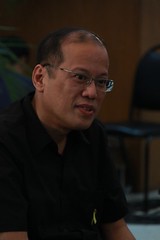Last week, Sen. Pia Cayetano complained about the poor condition of NAIA, particularly focusing on the filthy air caused by allowing smoking indoors.
In April 2012, I wrote to the MIAA general manager on this very issue. I'll share the reply I got from MIAA, as well as the CSC legal opinion, in my next blog posts.
Part 2
Part 3
-------------------
MGen. Jose Angel A. Honrado, AFP (Ret)
Dear Sir,
I am writing to you about my recent experience flying through NAIA, wherein I and hundreds of other departing passengers were involuntarily subjected to the harmful fumes of tobacco smoke coming from the smoking room at the departure area. Unfortunately, this harm to health of all passengers, as well as airport and airline staff, is occurring on a daily basis.
The scientific evidence on this matter spans decades and is very clear in its conclusions: there is no safe level of exposure to tobacco smoke. This is widely recognized by the World Health Organization, the American Society of Heating, Refrigerating and Air-Conditioning Engineers (ASHRAE), International Agency for Research on Cancer (IARC), as well as the 174 Parties (including the Philippines) to the Framework Convention on Tobacco Control (FCTC). The only way to prevent health harms is through effective public protection policies that prevent human exposure to tobacco smoke, that is by prohibiting smoking in all indoor public places and workplaces.
Given that the airport, as well as the MIAA, are government premises and that MIAA staff are government employees, the MIAA is also duty-bound to implement the Civil Service Commission (CSC) Memorandum Circular no. 17, s. 2009, which prohibits smoking in all government buildings and promotes a 100% smoke-free environment in government premises, in order to protect both the government workforce and the public that they serve. I am sure the CSC can assist you in preparing the proper signages to implement this policy.
In April 2012, I wrote to the MIAA general manager on this very issue. I'll share the reply I got from MIAA, as well as the CSC legal opinion, in my next blog posts.
Part 2
Part 3
-------------------
Date: Mon, Apr 9, 2012 at 9:50 PM
Subject: smoking rooms at NAIA
To: gmo@miaa.gov.ph, sagm@miaa.gov.ph, aod@miaa.gov.ph, pao@miaa.gov.ph, media@miaa.gov.ph,md@miaa.gov.ph, rfd@miaa.gov.ph
MGen. Jose Angel A. Honrado, AFP (Ret)
General Manager
MIAA
Dear Sir,
I am writing to you about my recent experience flying through NAIA, wherein I and hundreds of other departing passengers were involuntarily subjected to the harmful fumes of tobacco smoke coming from the smoking room at the departure area. Unfortunately, this harm to health of all passengers, as well as airport and airline staff, is occurring on a daily basis.
The scientific evidence on this matter spans decades and is very clear in its conclusions: there is no safe level of exposure to tobacco smoke. This is widely recognized by the World Health Organization, the American Society of Heating, Refrigerating and Air-Conditioning Engineers (ASHRAE), International Agency for Research on Cancer (IARC), as well as the 174 Parties (including the Philippines) to the Framework Convention on Tobacco Control (FCTC). The only way to prevent health harms is through effective public protection policies that prevent human exposure to tobacco smoke, that is by prohibiting smoking in all indoor public places and workplaces.
Given that the airport, as well as the MIAA, are government premises and that MIAA staff are government employees, the MIAA is also duty-bound to implement the Civil Service Commission (CSC) Memorandum Circular no. 17, s. 2009, which prohibits smoking in all government buildings and promotes a 100% smoke-free environment in government premises, in order to protect both the government workforce and the public that they serve. I am sure the CSC can assist you in preparing the proper signages to implement this policy.
I therefore appeal to you to remove the smoking lounges from the various NAIA terminal buildings and designate only OUTDOOR smoking areas, in locations where the smoke will not be able to affect the airport staff and the public that uses the airport facilities. For your information, there are more than 250 airports in the United States that are 100% smoke-free, including some of the biggest and busiest ones. There are also many others in Canada, South America, Australia, and Europe. Even Beijing Capital International Airport closed its smoking lounges and became 100% smoke-free in 2011. Other Asian countries are also planning to follow suit because this is one way to encourage tourism, by providing clean and healthy airport environments.
Thank you for providing a healthy environment for all and for fulfilling your duty under CSC MC 17, s. 2009.
Sincerely,
Dr. Yul Dorotheo

